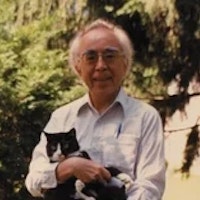Compassion without wisdom is not understood to be true compassion, and wisdom without compassion is not true wisdom.
Masao Abe

Compassion and Wisdom
Topic: Wisdom & Understanding
Compassion without wisdom is not understood to be true compassion, and wisdom without compassion is not true wisdom.
Masao Abe (1915-2006) was a Japanese philosopher and Buddhist thinker from Osaka. He built on the work started by D.T. Suzuki to bring Zen Buddhism to the West. After studying at Columbia University and Union Theological Seminary, he earned his Ph.D. from Kyoto University. He focused on connecting Buddhist and Western ideas.
In the mid-20th century, Abe traveled in North America and Europe, teaching at various U.S. universities. He introduced Western scholars to Zen concepts, like "Sunyata" or emptiness. He believed understanding this could help merge Christian and Buddhist ideas. In the 1950s and 1960s, Abe talked with Buddhist scholar Daisetz Teitaro Suzuki in New York. After Suzuki's passing, Abe continued spreading Buddhist teachings in the West. He also met Christian experts Paul Tillich and Reinhold Niebuhr in New York.
Abe wrote several works, including "Zen and Western Thought", and contributed to other academic series. His writings and efforts in interfaith dialogues made him a key figure in discussions between Eastern and Western beliefs.
Zen and Western Thought
Abe, Masao. Zen and Western Thought. State University of New York Press, 1985. Print. P. 125.

Masao Abe
Theme: Wisdom

Commentary About This Masao Abe Quote [First Part]
Commentary About This Masao Abe Quote [Second Part]
Resources
Related Quotes
Copyright © 2017 – 2026 LuminaryQuotes.com About Us